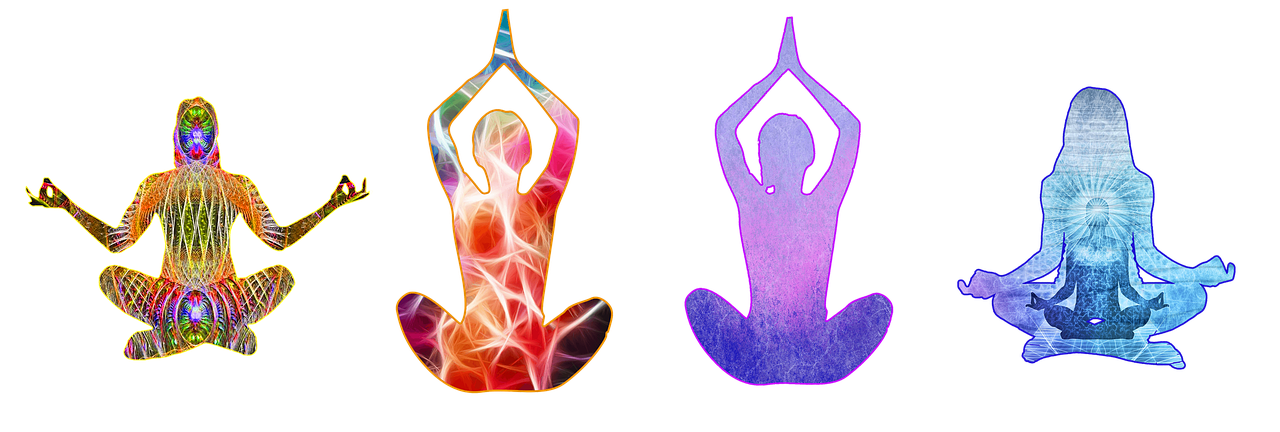Metaphysics - Unveiling The Ultimate Reality
Welcome to the intriguing world of metaphysics, where we dive deep into the profound questions that have puzzled humanity for centuries. What is the nature of existence? Is there a reality beyond our perception? These questions are not just philosophical musings; they are the very essence of metaphysical inquiry. Metaphysics seeks to unveil the ultimate reality that underpins our experiences, challenging us to look beyond the surface and explore the fundamental principles that govern the universe.
Imagine standing on the edge of a vast ocean, the waves crashing against the shore, each one a unique moment in time. Just as the ocean is made up of countless individual drops of water, our understanding of reality is shaped by countless experiences and interpretations. Metaphysics invites us to ponder these experiences and encourages us to question the nature of reality itself. Are we merely observers, or do we play a role in shaping the world around us? This article will guide you through the historical roots of metaphysics, key concepts that define it, and the ongoing dialogue between metaphysics and science.
As we embark on this journey, we will explore the contributions of ancient philosophers who laid the groundwork for contemporary metaphysical thought. From the existential ponderings of Socrates to the intricate theories of Aristotle, these thinkers have shaped our understanding of existence, reality, and the nature of being. Their ideas continue to resonate today, prompting us to ask: What does it mean to exist? What is the essence of reality? Through this exploration, we aim to unveil the layers of meaning that constitute our understanding of the universe.
In the following sections, we will delve into key concepts such as existence, reality, substance, and causality. Each concept serves as a building block in the grand edifice of metaphysical thought. By examining these ideas, we can better understand how they shape our perceptions and influence our beliefs about the world around us.
So, buckle up as we embark on this intellectual adventure! We will navigate the complexities of metaphysical thought, unraveling the mysteries that have captivated philosophers and thinkers throughout history. Prepare to challenge your assumptions and expand your horizons as we seek to unveil the ultimate reality.
- What is metaphysics? Metaphysics is a branch of philosophy that explores the fundamental nature of reality, existence, and the relationship between mind and matter.
- Why is metaphysics important? It helps us understand the underlying principles that govern our experiences and the universe, prompting us to question our beliefs and perceptions.
- How does metaphysics relate to science? Metaphysics and science intersect in their exploration of reality, with metaphysical assumptions often underpinning scientific theories.
- What are some key concepts in metaphysics? Key concepts include existence, reality, substance, causality, and the nature of being.

[The Origins of Metaphysics]
Understanding the historical roots of metaphysics helps contextualize its evolution. The term itself, derived from the Greek words "meta" (beyond) and "physika" (physics), signifies a quest that goes beyond the physical realm. This exploration began in ancient civilizations, where philosophers sought to unravel the mysteries of existence and reality. Think of it as the philosophical equivalent of a treasure hunt, where each discovery leads to deeper questions and insights.
The journey of metaphysics can be traced back to the **ancient Greeks**, particularly to thinkers like Plato and Aristotle. Plato, with his theory of Forms, posited that the material world is just a shadow of a higher reality composed of perfect, abstract entities. Imagine standing in front of a mirror that reflects not just your image but the essence of who you are. This idea sparked discussions about the nature of reality and existence, prompting philosophers to ponder: What is real? Are our perceptions merely illusions?
Aristotle, on the other hand, took a more empirical approach. He emphasized the importance of substance and causality, laying the groundwork for later metaphysical inquiry. His notion of substance as the essence of things helped shape the way we think about existence. You could say he was the architect of metaphysical thought, constructing a framework that would influence countless generations of philosophers.
As we move through history, we encounter the medieval philosophers, who infused metaphysical discussions with religious perspectives. Thinkers like St. Augustine and St. Thomas Aquinas integrated metaphysical concepts with theological doctrines, suggesting that understanding the divine was essential to grasping the nature of existence. This fusion of faith and reason created a rich tapestry of ideas that still resonate today.
In the modern era, metaphysics faced challenges from the rise of empiricism and rationalism. Philosophers like René Descartes and Immanuel Kant questioned the very foundations of metaphysical inquiry. Descartes' famous dictum, "I think, therefore I am," shifted the focus from external reality to the individual's consciousness, while Kant argued that our understanding of reality is shaped by our perceptions. This evolution in thought illustrates the dynamic nature of metaphysics, as it adapts to new insights and challenges.
Through these historical lenses, we can appreciate how metaphysics has evolved from ancient contemplations to contemporary debates. Each philosopher has contributed a unique piece to the puzzle, shaping our understanding of existence, reality, and the nature of being. Today, metaphysics continues to provoke questions that challenge our assumptions and inspire further exploration.
| Philosopher | Key Contribution | Era |
|---|---|---|
| Plato | Theory of Forms | Ancient Greece |
| Aristotle | Concept of Substance | Ancient Greece |
| St. Augustine | Integration of Faith and Reason | Medieval Period |
| Immanuel Kant | Critique of Pure Reason | Modern Era |

[Key Concepts in Metaphysics]
Metaphysics, often seen as the backbone of philosophical inquiry, tackles the most profound questions about our existence. It dives deep into concepts that shape our understanding of the universe, life, and everything in between. At its core, metaphysics seeks to unravel the mysteries of existence, reality, substance, and causality. These concepts are not just abstract ideas; they are the very fabric of our philosophical discussions, influencing how we perceive the world around us.
To truly grasp the essence of metaphysics, we must first explore these fundamental concepts. Each one plays a pivotal role in shaping our understanding of reality, and together, they create a rich tapestry of philosophical thought. For instance, when we talk about existence, we aren't merely acknowledging that something is present; we are probing into what it means for something to exist at all. Is existence an inherent quality, or is it dependent on our perception? This question leads us to the distinction between existence and reality, which is crucial for any metaphysical inquiry.
The concept of substance further complicates our understanding. What is substance? Is it the physical matter we can touch and see, or does it extend to the essence of things, the underlying qualities that define an object? Philosophers have debated this for centuries, and the answers often lead to more questions. For example, consider the idea of a chair. We can describe its physical attributes, such as its color and material, but what makes it a chair? Is it the form it takes, or the function it serves? This inquiry into substance is vital for comprehending the nature of reality itself.
Next, we encounter the concept of causality. How do events unfold in our universe? Is there a predetermined path, or do we live in a world of chance and spontaneity? Theories of causation, such as determinism and indeterminism, offer contrasting views on this matter. Determinism posits that every event is caused by preceding events, leading to a predictable chain of occurrences. On the other hand, indeterminism suggests that not all events are predetermined, allowing for randomness and surprise in our lives. This debate is not merely academic; it has profound implications for our understanding of free will and moral responsibility.
As we delve deeper into these concepts, we can see how they interconnect. For instance, the problem of universals challenges us to consider whether abstract concepts exist independently of the objects they represent. Are qualities like "redness" or "beauty" real entities, or are they simply names we assign to certain experiences? This question leads us to explore the realms of realism and nominalism, two opposing philosophical positions that have sparked lively debates among scholars.
In summary, the key concepts in metaphysics—existence, reality, substance, and causality—serve as the foundation for understanding our world. They invite us to ponder the nature of being and challenge us to question our perceptions and beliefs. As we navigate through these intricate ideas, we find ourselves on a journey that not only enriches our understanding of philosophy but also enhances our appreciation of life itself.
- What is metaphysics? Metaphysics is a branch of philosophy that explores the fundamental nature of reality, existence, and the universe.
- Why is metaphysics important? Metaphysics provides a framework for understanding complex concepts such as being, causality, and the nature of reality, influencing many other fields of study.
- What are some key concepts in metaphysics? Key concepts include existence, reality, substance, causality, and the problem of universals.
- How does metaphysics relate to science? Metaphysics and science often intersect, as metaphysical assumptions can shape scientific theories and vice versa.

[Existence and Reality]
When we dive into the deep waters of metaphysics, one of the most captivating questions that comes to the surface is the distinction between existence and reality. At first glance, these terms might seem interchangeable, but they unravel a complex tapestry of philosophical thought that has intrigued minds for centuries. So, what exactly do we mean when we talk about existence? Is it merely being, or is it something more profound?
Existence can be viewed as the state of being present in some form, whether it’s physical, abstract, or even hypothetical. For instance, a tree standing in your backyard undeniably exists. It has a tangible presence, a form, and a location. But what about concepts like love or justice? These ideas don't have a physical form, yet we often claim they exist in our experiences and interactions. This brings us to the heart of the matter: existence might encompass a broader spectrum than we initially perceive.
On the other hand, reality is a more intricate concept. It refers not just to what exists but also to the nature of that existence and the way we perceive and understand it. Reality is shaped by our experiences, beliefs, and the collective understanding of our society. Think of it this way: existence is like the stage, while reality is the play that unfolds upon it. The actors (ideas, objects, and experiences) interact in a way that creates a narrative we come to accept as our reality.
Philosophers have grappled with these concepts for ages. For example, the ancient Greek philosopher Plato proposed a theory of forms, suggesting that the physical world is just a shadow of a more perfect reality. In contrast, Aristotle argued that existence and reality are intertwined, emphasizing that the essence of a thing cannot be separated from its existence. This debate continues to echo through the halls of modern philosophy, with various schools of thought proposing different interpretations.
To further illustrate the distinction, let’s consider the following table that summarizes key differences:
| Aspect | Existence | Reality |
|---|---|---|
| Definition | The state of being present | The nature and understanding of that being |
| Examples | A tree, a rock, a thought | Love, justice, the universe |
| Philosophical Approach | Often objective | Subjective and influenced by perception |
As we explore the nuances of existence and reality, we encounter various philosophical interpretations that challenge our understanding. For instance, the existentialists, like Jean-Paul Sartre, argue that existence precedes essence, meaning that individuals must create their own meaning in an indifferent universe. This perspective flips the traditional view on its head and invites us to consider how our existence shapes our reality.
In conclusion, the interplay between existence and reality is a profound aspect of metaphysical inquiry. By understanding these concepts, we can better navigate the complexities of our own lives and the world around us. Whether we see existence as a mere fact or as something that intertwines with our perception of reality, one thing remains clear: these questions are not just academic; they resonate deeply within our human experience.
- What is the difference between existence and reality? Existence refers to the state of being present, while reality encompasses our understanding and interpretation of that existence.
- How do philosophers view existence? Philosophers have various interpretations, with some like Plato seeing existence as a shadow of a higher reality, while others like Aristotle view them as intertwined.
- Why is understanding existence important? Grasping the concept of existence helps us navigate our experiences and understand our place in the universe.

[The Nature of Being]
The nature of being is one of the most intriguing and complex topics in metaphysics. It raises profound questions about what it means to exist and the essence of reality itself. To put it simply, being can be thought of as the state of existence; however, it’s much more nuanced than that. Philosophers have grappled with the concept of being for centuries, and their explorations have led to a variety of theories that attempt to explain the essence of existence.
At its core, the study of being can be divided into two primary schools of thought: essentialism and existentialism. Essentialism posits that every entity has a set of characteristics that define its essence. For instance, consider a chair. Its essence might include its function as a seat, its structure, and the materials from which it's made. This perspective suggests that understanding the essence of an object or being is crucial to understanding its existence.
On the other hand, existentialism challenges this notion by arguing that existence precedes essence. In this view, individuals are not born with a predetermined essence; rather, they create their own meaning and identity through choices and actions. This leads to a more fluid understanding of being, where individuals are seen as dynamic and constantly evolving. Imagine a sculptor shaping a block of clay; the clay has no inherent form until the artist begins to mold it. Similarly, existentialists believe that we are the sculptors of our own lives.
Moreover, the nature of being invites further inquiry into the relationship between the physical and the abstract. For instance, consider the problem of universals, which questions whether abstract concepts, like beauty or justice, exist independently of the objects they represent. This leads to two main positions: realism, which argues that universals exist as real entities, and nominalism, which claims that universals are merely names we use to categorize experiences. This debate highlights the complexity of defining being and how our understanding can shift based on philosophical perspectives.
To illustrate the differences between these views, let’s look at the following table:
| Theory | Definition | Key Thinkers |
|---|---|---|
| Essentialism | The belief that entities have a set essence that defines them. | Plato, Aristotle |
| Existentialism | The belief that existence precedes essence and individuals create their own meaning. | Sartre, Heidegger |
| Realism | The belief that universals exist independently of particular instances. | Plato, Aquinas |
| Nominalism | The belief that universals are mere names without independent existence. | Ockham, Hume |
In conclusion, the nature of being is a rich and multifaceted topic that continues to inspire philosophical inquiry. Whether one leans toward essentialism or existentialism, the exploration of being forces us to confront our own existence and the meaning we derive from it. The questions raised by these theories not only challenge us to think deeply about our own lives but also about the very fabric of reality itself. As we delve deeper into the mysteries of existence, we may find that the journey of understanding being is as significant as the answers we seek.
- What is the difference between being and existence?
Being refers to the essence or nature of entities, while existence pertains to the state of being present or real. - How do essentialism and existentialism differ?
Essentialism posits that entities have a predetermined essence, whereas existentialism argues that individuals create their own essence through their choices. - What are universals in metaphysics?
Universals are abstract concepts that may or may not exist independently of the objects they describe, leading to debates between realism and nominalism.

[The Problem of Universals]
The problem of universals is a fascinating and complex topic in metaphysics that has puzzled philosophers for centuries. At its core, this problem grapples with the question of whether abstract concepts, like "redness" or "beauty," exist independently of the objects they represent. Imagine walking through a vibrant garden filled with red roses. You might wonder, does "redness" exist as a quality of these roses, or is it merely a label we use to describe them? This inquiry leads us into the heart of metaphysical debates about the nature of reality and existence.
Two primary schools of thought emerge in this discussion: realism and nominalism. Realists argue that universals are real entities that exist independently of the particular things that instantiate them. For instance, the concept of "redness" exists outside of any specific red object. In contrast, nominalists contend that universals are just names or labels we assign to groups of particulars, lacking any independent existence. To illustrate this, consider the following table that summarizes the key differences between realism and nominalism:
| Aspect | Realism | Nominalism |
|---|---|---|
| Existence of Universals | Universals exist independently | Universals are mere names |
| Example | The concept of "redness" exists apart from red objects | "Red" is just a label for objects that share a color |
| Philosophical Implications | Supports objective truths | Leads to a more subjective understanding of reality |
This dichotomy raises profound implications for metaphysical theory. If universals exist independently, it suggests a reality that is more structured and objective, where truths can be universally acknowledged. On the other hand, if they are merely names, it opens the door to a reality shaped by human perception and language, making truth more subjective and varied. The implications of these views extend beyond mere academic debate; they influence how we understand concepts in ethics, science, and even art.
Furthermore, the problem of universals intersects with other philosophical inquiries, such as the nature of language and the limits of human understanding. For instance, how do we communicate complex ideas if they rely on abstract concepts that may not exist independently? This leads to further questions about the relationship between language and thought, challenging us to consider how our understanding of the world is shaped by the words we use.
In summary, the problem of universals is not just a theoretical exercise; it is a profound inquiry into the very nature of reality itself. As we continue to explore this topic, we uncover layers of complexity that challenge our perceptions and push the boundaries of philosophical thought.
- What are universals in philosophy? Universals are abstract concepts or qualities that can be shared by multiple particular things, such as "redness" or "beauty."
- What is the difference between realism and nominalism? Realism posits that universals exist independently of particular objects, while nominalism argues that universals are merely names without independent existence.
- Why is the problem of universals important? It raises fundamental questions about the nature of reality, existence, and how we understand and communicate concepts.

[Causality and Change]
Causality is a fundamental concept in metaphysics that explores the relationship between causes and their effects. It is the backbone of our understanding of how events unfold in the universe. Imagine a line of dominoes; when you push the first one, it causes a chain reaction that leads to all the others falling. This simple analogy illustrates how causation works in a broader context, but the complexities of causality extend far beyond such straightforward examples. At the core of metaphysical discussions, causality prompts us to ask profound questions: What does it mean for something to cause something else? Is there a predetermined order to events, or is there room for randomness and chaos?
There are various theories of causation that philosophers and scientists have proposed over the years. One of the most prominent is determinism, which posits that every event is necessitated by preceding events in accordance with the laws of nature. In other words, if we had complete knowledge of the universe at a given moment, we could predict every future event with absolute certainty. On the flip side, we have indeterminism, which allows for the possibility that not all events are causally determined. This perspective introduces an element of randomness or chance into the fabric of reality, suggesting that some occurrences may happen without a direct cause. These opposing views create a rich tapestry of debate within metaphysical circles.
To further understand causality, let's break down some key aspects:
- Types of Causation: There are several types of causation, including efficient causation (the immediate cause of an event), material causation (the substance or matter involved), and formal causation (the form or essence that defines an object).
- Temporal Order: Causality also involves the concept of time. Typically, a cause precedes its effect, leading to questions about the nature of time itself. Does time flow in one direction, or can it be perceived differently?
- Counterfactuals: Philosophers often use counterfactual reasoning to explore causality. This involves asking, "What if?" For example, if the domino hadn't been pushed, would the others have fallen? This type of reasoning challenges our understanding of causation and its implications.
In the realm of metaphysics, causality is not just a dry academic concept; it has real implications for how we view change in the universe. Change is an inevitable part of existence, and understanding causality helps us navigate the complexities of life. Whether it's the changing seasons, the aging process, or the evolution of ideas, causality provides a framework for understanding how and why these changes occur. Philosophers like David Hume have argued that our understanding of causation is rooted in human experience rather than objective reality, suggesting that causation may be more about perception than about actual connections in the world.
As we delve deeper into the nature of causality and change, we begin to see how intertwined these concepts are with our understanding of existence itself. Are we merely passive observers in a deterministic universe, or do we possess the agency to influence our own destinies? The answers to these questions are not just philosophical musings; they shape our perceptions, decisions, and ultimately, our lives.
- What is causality? Causality refers to the relationship between causes and their effects, explaining how one event leads to another.
- What is the difference between determinism and indeterminism? Determinism suggests that every event is caused by preceding events, while indeterminism allows for randomness and chance in events.
- How does causality relate to change? Causality helps us understand how and why changes occur in the universe, providing a framework for interpreting the dynamics of existence.

[Metaphysics and Science]
When we think about metaphysics and science, it might feel like we're trying to mix oil and water. They seem to operate in different realms: one delves into the nature of existence and reality, while the other focuses on empirical evidence and observable phenomena. However, the relationship between these two fields is far more intricate and fascinating than it appears at first glance. Metaphysics provides the foundational questions that science seeks to answer, acting as a philosophical framework that shapes our understanding of the universe.
Consider this: every scientific theory is built on certain metaphysical assumptions. For instance, when scientists conduct experiments, they operate under the belief that the universe is orderly and that the laws of nature are consistent. These beliefs are not derived from scientific inquiry itself but rather from metaphysical perspectives about the nature of reality. In this way, metaphysics and science are intertwined, each influencing the other in a continuous dance of discovery and understanding.
One of the most compelling aspects of this relationship is how scientific discoveries often challenge and refine metaphysical theories. Take, for example, the advent of quantum mechanics. This branch of physics has introduced concepts that defy classical metaphysical notions, such as determinism and causality. As scientists delve deeper into the quantum realm, they uncover phenomena that seem to contradict our intuitive understanding of reality. This prompts a reevaluation of metaphysical concepts, leading to rich discussions about the very fabric of existence.
Furthermore, metaphysics plays a crucial role in framing scientific inquiries. Before a hypothesis can be tested, it must be grounded in some form of metaphysical understanding. For instance, the debate over whether time is linear or cyclical has significant implications for how we approach scientific research in fields like physics and cosmology. Theories about the nature of time influence how we interpret data and formulate new questions, highlighting the interconnectedness of these disciplines.
However, this relationship is not without its challenges. The rise of scientific realism has led to a more stringent view of what can be considered 'real.' This perspective argues that the entities described by science, such as electrons and black holes, exist independently of our perceptions or theories about them. This can create friction with certain metaphysical viewpoints that suggest reality is more subjective or constructed. As science continues to advance, it often prompts philosophers to reconsider the assumptions that underpin metaphysical thought.
In conclusion, the interplay between metaphysics and science is a dynamic one, marked by a constant exchange of ideas and challenges. While they may seem like separate domains, their relationship is essential for a deeper understanding of the universe. As we continue to explore the mysteries of existence, the dialogue between these two fields will undoubtedly enrich both our scientific endeavors and our philosophical inquiries.
- What is the main difference between metaphysics and science? Metaphysics deals with the fundamental nature of reality and existence, while science focuses on empirical evidence and the natural world.
- How does metaphysics influence scientific theories? Metaphysical assumptions provide the foundational questions and beliefs that guide scientific inquiry and interpretation of data.
- Can scientific discoveries change metaphysical beliefs? Yes, scientific advancements often challenge existing metaphysical views, leading to a reevaluation of our understanding of reality.

[The Role of Metaphysics in Scientific Inquiry]
Metaphysics, often seen as the philosophical backbone of science, plays a crucial role in shaping the questions we ask and the frameworks we use to interpret the world around us. While science is grounded in empirical evidence and experimentation, metaphysics provides the foundational assumptions that guide scientific inquiry. It's like the invisible scaffolding that supports the towering structure of scientific knowledge. Without these metaphysical underpinnings, our understanding of reality would be akin to a house of cards—fragile and easily toppled.
One of the primary ways metaphysics influences science is through its exploration of concepts such as causality, space, and time. For instance, when scientists investigate the laws of physics, they are often operating under metaphysical assumptions about how objects interact and the nature of time itself. These assumptions shape the development of theories, guiding researchers in their quest to uncover the secrets of the universe.
Moreover, metaphysical inquiry prompts scientists to consider questions that lie beyond empirical observation. For example, what does it mean for something to "exist"? Is existence a binary state, or is it more nuanced? These inquiries push the boundaries of scientific exploration, encouraging a dialogue between philosophy and science that enriches both fields. Metaphysics not only helps frame scientific questions but also challenges scientists to think critically about the implications of their findings.
To illustrate this relationship further, consider the following table that highlights key metaphysical concepts and their relevance to scientific inquiry:
| Metaphysical Concept | Scientific Relevance |
|---|---|
| Existence | Understanding what it means for entities to exist in the universe. |
| Causality | Examining the cause-and-effect relationships that govern physical phenomena. |
| Time | Investigating the nature of time and its implications for physics and cosmology. |
| Space | Exploring the nature of space and how it relates to matter and energy. |
As we delve deeper into the relationship between metaphysics and science, we find that metaphysical assumptions often serve as a guiding light for scientific theories. For instance, the concept of determinism—the idea that every event or state of affairs is the result of preceding events—has profound implications for both physics and philosophy. It raises questions about free will and moral responsibility, challenging scientists and philosophers alike to reconcile their views on human agency with the mechanistic universe described by physics.
In conclusion, the role of metaphysics in scientific inquiry cannot be overstated. It provides the conceptual tools that enable scientists to formulate hypotheses, interpret data, and ultimately make sense of the universe. As we continue to explore the mysteries of existence, the interplay between metaphysics and science will remain a vital area of inquiry, inviting us to ponder the fundamental nature of reality itself.
- What is metaphysics? Metaphysics is a branch of philosophy that explores the fundamental nature of reality, including concepts such as existence, being, and the universe.
- How does metaphysics relate to science? Metaphysics provides the foundational assumptions and conceptual frameworks that guide scientific inquiry and interpretation of empirical data.
- Can science exist without metaphysics? While science relies on empirical evidence, metaphysical assumptions are essential for framing scientific questions and understanding the implications of scientific findings.
- What are some key metaphysical concepts? Important concepts include existence, causality, time, and space, each playing a significant role in scientific exploration.

[Challenges from Scientific Realism]
Scientific realism is a fascinating and often contentious stance that asserts the existence of a reality independent of our perceptions. It posits that the entities described by science, such as electrons and black holes, exist regardless of whether we can observe them. But hold on! This idea doesn’t come without its challenges, especially when we dive deep into the murky waters of metaphysics. Are we truly grasping the essence of reality, or are we merely constructing elaborate models that serve our understanding?
One of the primary challenges posed by scientific realism is its **reliance on empirical evidence**. While scientific theories are grounded in observable phenomena, metaphysics often ventures into the abstract, questioning the nature of existence itself. This leads to an intriguing dilemma: can we trust our scientific models to provide a complete picture of reality? For instance, consider the debate surrounding the existence of dark matter. While scientists propose its existence based on indirect evidence, metaphysicians might question whether this concept truly reflects an underlying reality or simply fills gaps in our knowledge.
Moreover, scientific advancements frequently prompt a reevaluation of established metaphysical concepts. As we uncover more about the universe through science, we find ourselves at a crossroads where traditional metaphysics may seem inadequate. For example, the advent of quantum mechanics has challenged our classical notions of causality and determinism. In classical physics, events are predictable and follow a clear cause-and-effect chain. However, quantum mechanics introduces elements of randomness and uncertainty, leading to the question: does our metaphysical framework need to adapt to accommodate these new scientific insights?
To illustrate this point, consider the following table that summarizes key differences between scientific realism and metaphysical perspectives:
| Aspect | Scientific Realism | Metaphysical Perspective |
|---|---|---|
| Nature of Reality | Objective and independent | Subjective and interpretative |
| Basis of Understanding | Empirical evidence | Philosophical reasoning |
| Concept of Causality | Deterministic | Varies (determinism vs. indeterminism) |
| Adaptability | Static (until new evidence) | Dynamic (open to reinterpretation) |
This table highlights the contrasting approaches of scientific realism and metaphysical inquiry. While scientific realism emphasizes an objective understanding of reality based on empirical evidence, metaphysics offers a more fluid interpretation that adapts to new philosophical insights. This dynamic interplay raises essential questions about the nature of existence, urging us to reconsider our assumptions and beliefs.
In conclusion, the challenges posed by scientific realism to metaphysical thought underscore the complexity of our quest for understanding. As we navigate this intricate landscape, it becomes clear that both science and metaphysics have valuable contributions to make. Rather than viewing them as opposing forces, we might find greater insight by recognizing their interplay and the rich discussions that arise from their dialogue. After all, isn’t the pursuit of knowledge about unraveling the mysteries of existence, one question at a time?
- What is scientific realism? Scientific realism is the view that the world described by science is real and exists independently of our observations.
- How does scientific realism challenge metaphysics? It challenges metaphysics by emphasizing empirical evidence and questioning the validity of abstract concepts that cannot be observed.
- Can metaphysics and science coexist? Yes, they can coexist, as both fields provide different perspectives on understanding reality.
- What role does causality play in these discussions? Causality is central to both scientific theories and metaphysical debates, influencing how we understand events and their relationships.

[Contemporary Metaphysical Debates]
In the ever-evolving landscape of philosophy, contemporary metaphysical debates are vibrant and multifaceted, reflecting the complexities of modern thought. Philosophers today grapple with questions that have lingered for centuries, yet they approach these issues with fresh perspectives that challenge traditional views. One of the most captivating aspects of these debates is the exploration of modality, which delves into the nature of possibility and necessity. This inquiry raises intriguing questions: What does it mean for something to exist in a possible world? How do we differentiate between what is actual and what is merely possible?
Another significant area of discussion is the concept of time. Philosophers are not just pondering whether time is linear or cyclical; they are also examining whether it is an absolute entity or a mere construct of human perception. This leads to profound implications for how we understand our existence within the universe. For instance, if time is not a constant flow but rather a series of interconnected moments, how does that reshape our understanding of causality and change?
Moreover, the nature of consciousness remains a hotbed of debate. With advancements in neuroscience and cognitive science, the philosophical inquiry into consciousness is more pertinent than ever. Questions surrounding the mind-body problem persist: Is consciousness merely a byproduct of physical processes, or does it possess an independent existence? This discussion often leads to fascinating intersections with fields like artificial intelligence and ethics, prompting us to consider whether machines could ever achieve a form of consciousness akin to humans.
To illustrate the breadth of contemporary metaphysical debates, let's take a closer look at some of the key themes that are currently under scrutiny:
| Theme | Description | Key Questions |
|---|---|---|
| Modality | The study of possibility and necessity in relation to existence. | What is possible? What is necessary? |
| Time | Exploration of the nature of time and its implications for reality. | Is time linear or cyclical? Is it an absolute entity? |
| Consciousness | Investigating the essence and origin of consciousness. | Is consciousness a product of the brain? Can machines be conscious? |
These themes not only invigorate philosophical discourse but also resonate with the challenges of the modern world. As we navigate through rapid technological advancements and scientific discoveries, the questions raised in metaphysics become increasingly relevant. For instance, how do our understandings of reality and existence influence our ethical frameworks in a world where AI and biotechnology are becoming integral to our lives?
In conclusion, contemporary metaphysical debates are not just academic exercises; they are crucial for understanding our place in a complex and often bewildering universe. As philosophers continue to engage with these timeless questions, they bring forth insights that can illuminate our understanding of existence, reality, and the very nature of being itself. The dialogue between past and present philosophical thought enriches our quest for knowledge, challenging us to rethink what we know and how we perceive the world around us.
- What is modality in metaphysics? Modality refers to the study of possibilities and necessities in relation to existence, exploring what could be true or must be true.
- How does the concept of time affect metaphysical discussions? The nature of time influences our understanding of causality, change, and the structure of reality itself.
- Can machines achieve consciousness? This remains a debated topic, with arguments for and against the possibility of machine consciousness based on philosophical and scientific perspectives.
Frequently Asked Questions
- What is metaphysics?
Metaphysics is a branch of philosophy that explores the fundamental nature of reality, existence, and the universe. It delves into questions about what things are, how they exist, and the relationships between different entities. Think of it as the ultimate quest for understanding the "why" behind everything!
- How did metaphysics originate?
The origins of metaphysics can be traced back to ancient philosophers like Aristotle and Plato, who laid the groundwork for metaphysical inquiry. Their discussions about existence, reality, and the nature of being have influenced countless thinkers throughout history, creating a rich tapestry of philosophical thought.
- What are the key concepts in metaphysics?
Some of the fundamental concepts in metaphysics include existence, reality, substance, and causality. Each of these ideas plays a crucial role in shaping metaphysical discussions and helps us understand the intricate workings of the universe.
- What is the difference between existence and reality?
Existence refers to the state of being, while reality encompasses everything that exists, including abstract concepts. In metaphysical terms, existence is often considered a prerequisite for reality, but the nuances between these two concepts can lead to fascinating philosophical debates.
- What is the problem of universals?
The problem of universals addresses whether abstract concepts, like beauty or justice, exist independently of the objects they represent. This debate often pits realism, which asserts that universals exist, against nominalism, which denies their independent existence, leading to rich discussions in metaphysical theory.
- How does causality relate to metaphysics?
Causality is a central theme in metaphysics, helping us understand how events unfold in the universe. Different theories of causation, such as determinism and indeterminism, offer various perspectives on the nature of cause and effect and their implications for our understanding of reality.
- What is the relationship between metaphysics and science?
Metaphysics and science are intertwined, as metaphysical assumptions often underpin scientific theories. Scientific discoveries can influence metaphysical thought, prompting philosophers to reevaluate concepts of existence and reality in light of new empirical evidence.
- What challenges does scientific realism pose to metaphysics?
Scientific realism challenges traditional metaphysical views by asserting that scientific theories accurately describe the world. This perspective can lead to a reevaluation of metaphysical concepts, as advancements in science prompt questions about the nature of existence and reality.
- What are some contemporary debates in metaphysics?
Contemporary debates in metaphysics include discussions on modality (possibility and necessity), the nature of time, and consciousness. Modern philosophers engage with these timeless questions in innovative ways, exploring how they relate to our understanding of existence and reality today.



















